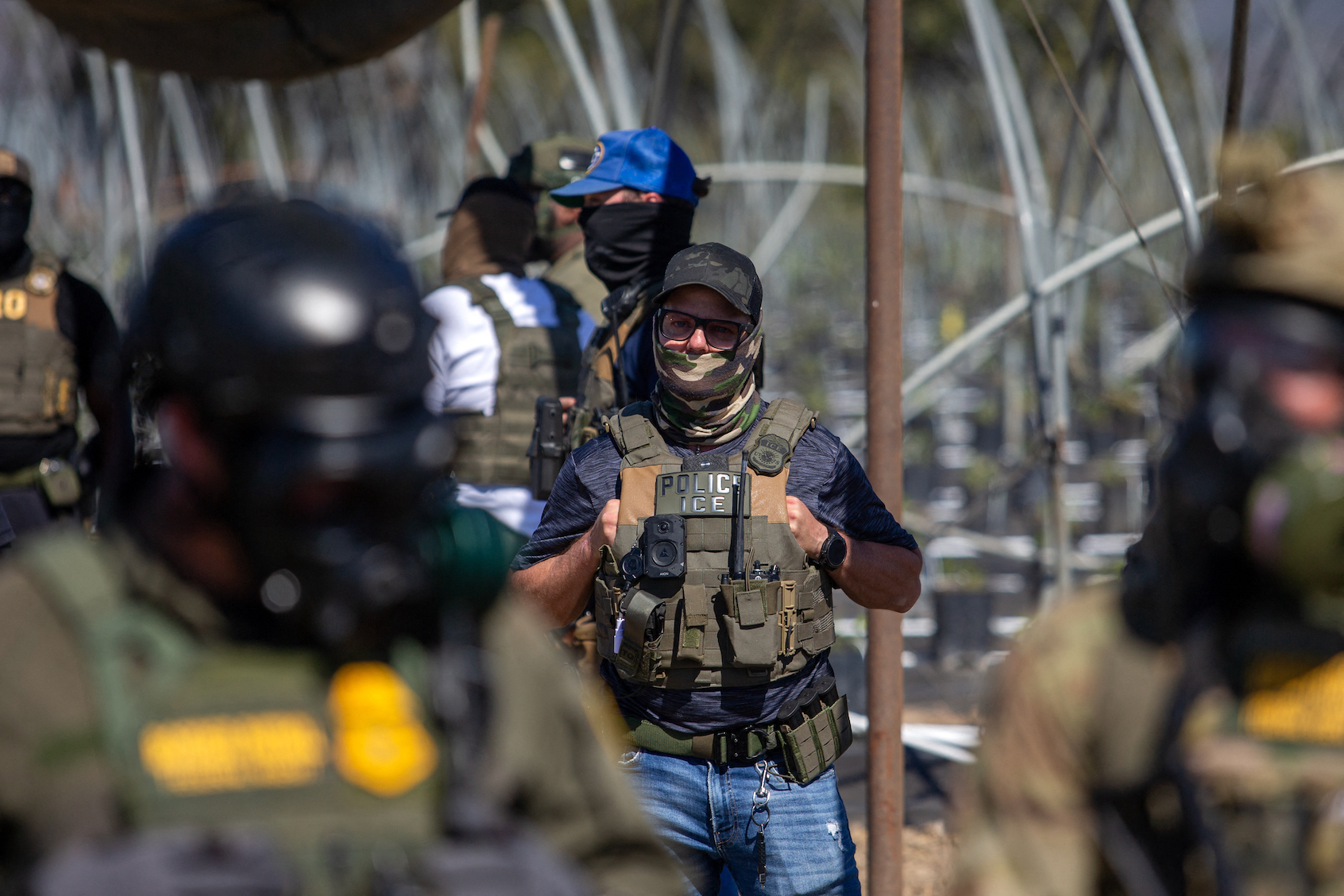People working for U.S. Immigration and Customs Enforcement aren’t just hiding their faces on the streets of American cities. They’re also remaining anonymous in court.
According to a new report from The Intercept, judges are declining to identify attorneys working for ICE during deportation proceedings spurred on by the agency. At one hearing, the oulet noted that the judge stated her own name, the name of the immigrants facing deportation, and the name of their attorneys, but failed to identify the ICE attorney.
“We’re not really doing names publicly,” an immigration judge in New York City, ShaSha Xu, said during a hearing in June.
Xu cited “privacy” as a justification, adding that “things lately have changed.”
Attorneys and legal experts are baffled by the move. Attorney Kenneth White said he’d worked as a prosecutor in cases against “white supremacists [and] street gang members” and never felt the need to hide who he was.
“This is not the act of a legitimate government,” White wrote on BlueSky. “What’s with these spineless creeps?”
Elissa Steglich, a law professor and co-director of the Immigration Clinic at the University of Texas at Austin, told The Intercept that concealing identities in the courtroom is an oddity.
“I’ve never heard of someone in open court not being identified,” Steglich said. “Part of the court’s ethical obligation is transparency, including clear identification of the parties. Not identifying an attorney for the government means if there are unethical or professional concerns regarding [the Department of Homeland Security], the individual cannot be held accountable. And it makes the judge appear partial to the government.”
Start your day with essential news from Salon.
Sign up for our free morning newsletter, Crash Course.
Identity concealment might be odd in court, but it’s becoming commonplace throughout ICE. Across the country, ICE agents have been masking up during raids and at immigration court.
ICE has justified agents wearing masks because of safety risks, claiming assaults against its agents are up almost 700%. DHS’ data showed 79 assaults in a six month period this year, compared to 10 assaults in the same period in 2024. That number isn’t adjusted to account for the increased number of ICE arrests this year. ICE arrests have increased in every state since President Donald Trump took office and have more than doubled in 38 states, according to the New York Times.
This agency has been in the spotlight thanks to Trump’s mass deportation plan, and Amerians aren’t liking what they see. ICE agents have refused lawmakers entry to agency facilities, detained tourists, and carried out raids that sparked days of protests in Los Angeles. The agency is set to have its efforts supercharged by a massive funding increase in Trump’s “big, beautiful” spending package.
Read more
about ICE


